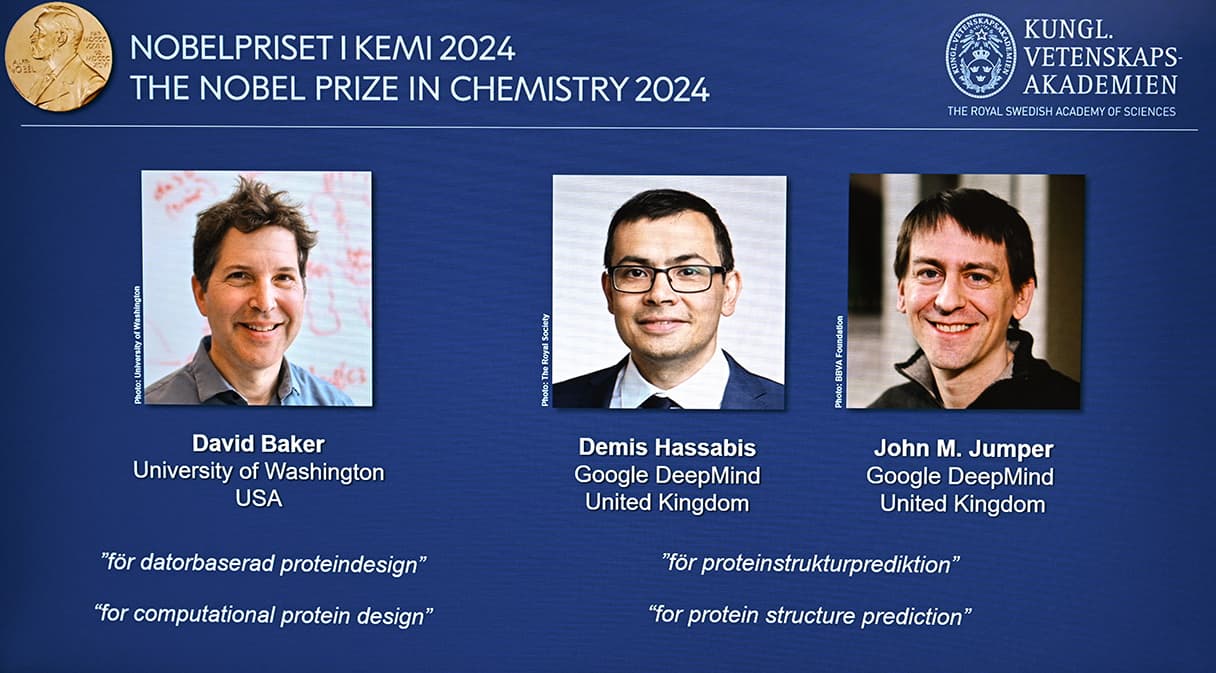AlphaFold's AI-Powered Prediction of 200 Million Protein Structures Earns Google DeepMind's Hassabis and Jumper 2024 Chemistry Nobel

London, UK – Demis Hassabis, CEO and Co-founder of Google DeepMind, and John Jumper, also from Google DeepMind, have been jointly awarded the 2024 Nobel Prize in Chemistry for their groundbreaking work on AlphaFold, an artificial intelligence system that predicts protein structures. David Baker of the University of Washington was awarded the other half of the prize for his contributions to computational protein design. The Royal Swedish Academy of Sciences recognized their discoveries for cracking the code of proteins' complex structures, a problem that had eluded scientists for over 50 years.
AlphaFold, developed by Hassabis and Jumper's team, is an AI model capable of accurately predicting the three-dimensional structure of proteins from their amino acid sequences. This revolutionary tool has since been used to predict the structures of virtually all 200 million known proteins, making them freely available to the scientific community. Over two million researchers across 190 countries have utilized AlphaFold, significantly accelerating advancements in fields such as enzyme design and drug discovery.
Demis Hassabis, a former child chess prodigy and co-founder of DeepMind, expressed his profound reaction to the honor. "It’s unbelievably special. It’s actually really surreal, to be honest. It hasn’t really sunk in, but it’s an incredible honor. It’s the big one, really," he stated. Hassabis views AlphaFold as the "first proof point of AI's incredible potential to accelerate scientific discovery," aligning with his career-long dedication to advancing AI for societal benefit.
The Nobel Committee emphasized the transformative effect of AI in science, noting that the ability to predict protein structures and design new proteins holds immense potential for humankind. John Jumper highlighted the role of computational biology, stating, "It is a key demonstration that AI will make science faster and ultimately help to understand disease and develop therapeutics." The recognition underscores the growing impact of artificial intelligence in fundamental scientific research.